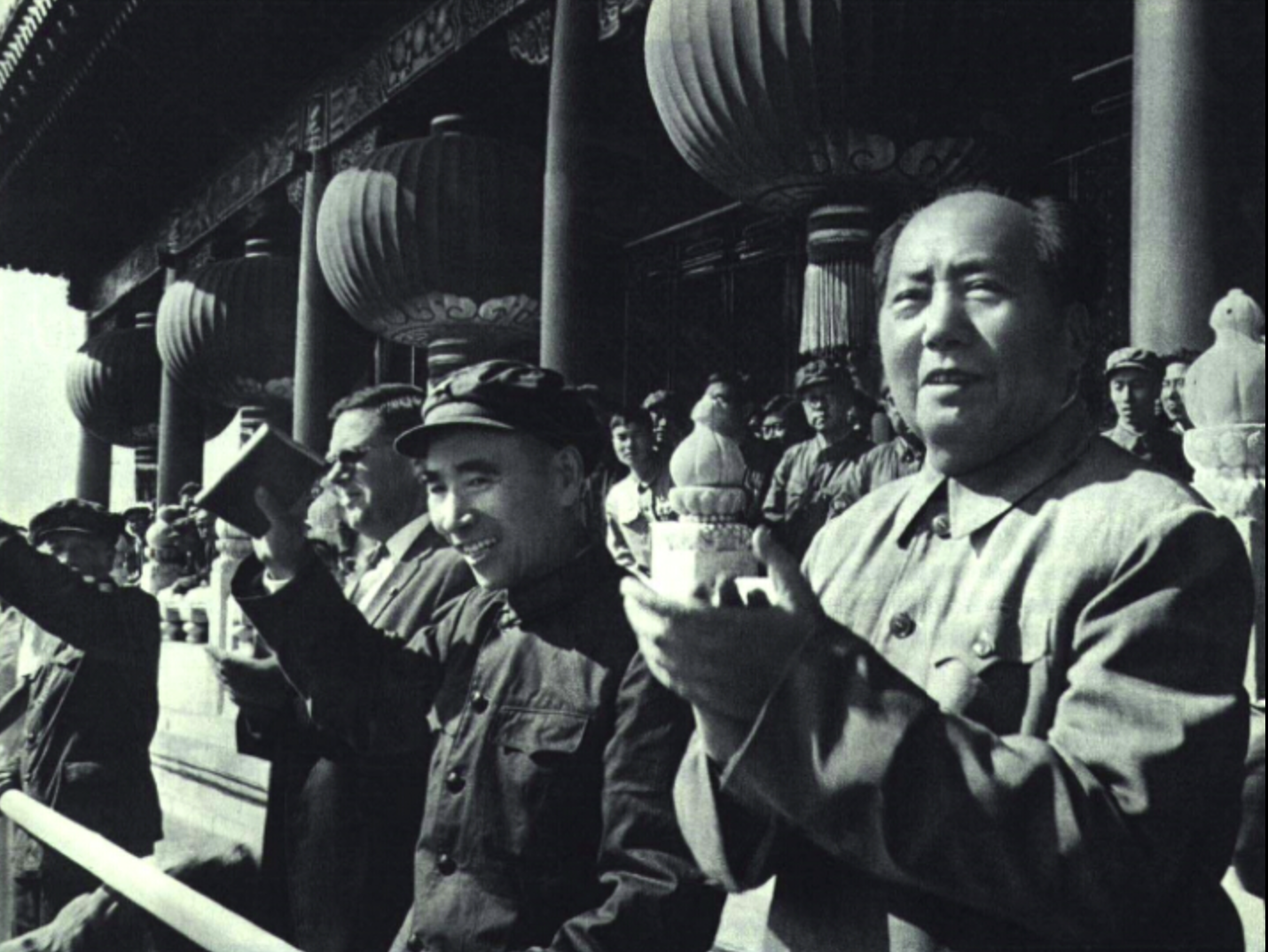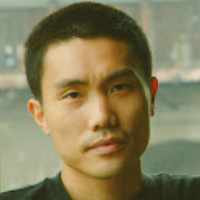
"When the flying birds are gone, the good bow is hidden; when the cunning rabbits are dead, the hunting dogs are cooked."
This is a script that is not uncommon at the beginning of every new dynasty. Mao Zedong, who read history every day, was naturally very familiar with it. Thus, at the beginning of the founding of the country, he started playing the game of "drinking to relinquish military power." In this way, those within the Party and government essentially had no status and naturally had no say in state affairs.
In 1952, Mao transferred the secretaries of various major regions to the central government, and the major administrative regions were soon abolished. This strengthened centralization. Lin Biao, who was the most aggressive and powerful, was naturally unable to escape this fate. Mao, as Vice Chairman of the Central Military Commission, made Lin's status gradually decline and effectively stripped him of military power.
The outbreak of the Korean War and Peng Dehuai's entry into Korea further lowered Lin Biao's position. In subsequent official Chinese Communist Party propaganda, in order to align with Lin Biao’s image of betrayal, avoiding the Korean War was portrayed as one of Lin Biao’s evidences of timidity. This was entirely fabricated. Lin Biao had opposed the Korean War from the beginning, but he was not afraid of war or loss.
As a seasoned and experienced general, Lin Biao clearly understood Stalin’s intention to use China as cannon fodder and Mao Zedong’s eagerness to become the successor of the communist movement. At a Central Military Commission Standing Committee meeting held on October 6, 1950, Lin Biao subtly said that it was not worth sacrificing a China with 500 million people to save a Korea with a few million people. We were confident in defeating the Nationalist forces, but whether we could defeat the American troops was uncertain. Compared to Mao’s unrealistic goodwill, Lin Biao’s words were very self-aware. The process and result of the Korean War also fully demonstrated this point.
However, Mao had already made up his mind, and seeing that the situation was difficult to reverse, Lin Biao proposed that even if troops were to be sent, they should be sent without fighting. Station troops in northern Korea and avoid combat if possible. Despite these later-proven wise suggestions not being adopted, Lin Biao, as a professional soldier, still made full preparations for the Korean War. The troops that entered Korea first were all from his Fourth Field Army, and with his glorious achievements in the Northeast, it was difficult for outsiders to find anyone else but Lin Biao for the command. Lin Biao himself also thought so.
He first transferred the 13th Corps from the 38th and 39th Armies in Henan, and the 40th Army, which had just completed operations in Guangdong, to the Northeast overnight to form the first echelon for entering Korea with the already stationed 42nd Army. Then he also, without Mao Zedong’s permission, issued verbal orders to transfer his former trusted subordinates, such as Deng Hua and Hong Xuezhi, to prepare for the expedition. From these actions, it was already apparent that Lin Biao was prepared to lead the troops into Korea. The troops preparing to enter Korea also always reported their work to Lin Biao as the responsible person.
However, such actions of Lin Biao, as expected, violated Mao Zedong's great taboo. The army directly obeying the general was intolerable for an emperor’s position. Mao, who was already very alert to Lin Biao’s eagerness to flatten the mountain peaks within the army, could no longer entertain any thoughts of sending Lin Biao to war. Mao was determined to deal with Lin Biao. Peng Dehuai, who had been sent to the Northwest for construction, was recalled. When Mao mentioned the candidate for the commander in the military committee meeting, he said:
“Recently, I talked to Lin Biao, but he said he was sleepless every night, weak and sick, afraid of wind, light, and noise. How can he lead troops to war with these fears? He asked to go to the Soviet Union for treatment, and I agreed.”
Lin Biao could only smile bitterly. He later wrote in his diary that Mao Zedong often fabricated a viewpoint of his and then refuted it. Having followed Mao Zedong for decades, the underlying meaning was not hard to understand. Lin Biao then took the opportunity to withdraw from battle under the pretense of illness, concealing his strength until the Lushan Conference. The difficulties he faced were truly hard for outsiders to understand. Mao was always aware of this, so he never blamed Lin Biao for his withdrawal due to illness but instead favored him due to Lin Biao’s physical integrity and cooperation.
In 1954, Lin Biao began to resume his substantive role, becoming the second vice premier of the State Council. In 1955, he and Deng Xiaoping joined the Central Political Bureau. The Lushan Conference in August 1959 was a very important node in the history of the Chinese Communist Party. Mao Zedong initially set the tone of the meeting to counterattack Liu Shaoqi, and also to counterattack the leftists, correcting some errors in the Great Leap Forward. However, Peng Dehuai could not help but present a lengthy memorandum. Although the memorandum was written in a gentle manner, it was actually a critique of Mao. This completely reversed the direction of the meeting. Mao Zedong, who had always refused to admit mistakes and despised self-criticism, believed that admitting errors was a trait of a ruler who led a country to its downfall. So his method was to cover up mistakes with bigger mistakes, leading the Lushan Conference to turn into a campaign against the right, going all the way to the extreme.
As Lin Biao replaced Peng Dehuai and became the Vice Premier of the State Council and Minister of Defense, while also overseeing the daily work of the Military Commission, he became the biggest beneficiary. This led some to believe that Lin Biao framed Peng Dehuai at the conference. In fact, this was not the case. After the founding of the country, Lin Biao's former deputy Gao Gang failed in the power struggle with Liu Shaoqi and Zhou Enlai and was forced to commit suicide. This incident made Lin Biao deeply realize the cruelty of internal party struggles and further submit to Mao Zedong’s power tactics. After witnessing Mao Zedong’s solitary battle against the entire party on Lushan, with the whole party being submissive, he became even more obedient in order to protect himself. He meaningfully said to Peng Dehuai, who had written the lengthy memorandum:
“In China, only Chairman Mao is a great hero; you and I are far from it. Don’t entertain this idea. I have old age but no ambition.”
This statement was clearly an insult to Peng Dehuai but was also a profound discussion of the harsh situation within the party. Peng Dehuai’s criticism of the People’s Communes and the Great Leap Forward in public affairs, and his criticism of Mao Zedong’s choice of concubines in private, indeed violated Mao Zedong’s many taboos, especially the issue of personal worship, which deeply touched Mao Zedong’s sore spot. Mao Zedong was desperately trying to root out the Khrushchev-like figure within the party to avoid being purged like Stalin. Peng Dehuai’s appearance made it inevitable for Peng to be overthrown, unrelated to Lin Biao. On the contrary, Lin Biao’s restraint from kicking Peng Dehuai while he was down made Peng Dehuai’s downfall at the Lushan Conference less severe.
The issue began as follows: Mao Zedong dug up old grievances from the Long March period and claimed that Lin Biao’s letter to the central government requesting to transfer the command of the Red Army to Peng Dehuai was actually Peng Dehuai’s behind-the-scenes instigation. Lin Biao could have remained silent on this matter since it was not beneficial to him. Unexpectedly, Lin Biao openly stated:
“Regarding the matter of me writing a letter to the central government at that meeting, Peng Dehuai did not know in advance.”
This cleared Peng Dehuai’s name on this issue. In the silence of the Lushan Conference, making such a statement actually shows that Lin Biao, to some extent, still retained basic moral integrity. He did not behave like most people within the Chinese Communist Party, who were duplicitous.
The consequences of the Lushan Conference were extremely severe. The leftist policies were not corrected but were instead intensified, leading to the disastrous effects of the Great Leap Forward. In November 1959, a famine in Xinyang, Henan, resulted in the deaths of 300,000 people. Over the next few years, this calamity gradually expanded, forming what was called the three-year natural disaster. People starved to death everywhere, and corpses were scattered all over. In fact, according to existing signs and data, China experienced rare favorable weather conditions during those three years. The so-called natural disaster was entirely the Chinese Communist Party’s attempt to shift blame, attributing its own mistakes to the heavens.
The currently acknowledged death toll by the Chinese Communist Party is around 10 million, but based on their consistent pattern of deception, the actual figures are likely several times higher. In recent years, scholars like Yang Jisheng have suggested that the true number of deaths during those three years could be around 40 million. Regardless, this remains the highest number of non-natural deaths during peacetime in China’s history.
As mentioned earlier, Liu Shaoqi rose to prominence by promoting Mao Zedong during the Yan'an Rectification Movement. He can be said to have succeeded and failed due to Mao Zedong's ideology, ultimately being consumed by the idol he helped establish. In 1959, Mao resigned as President and adopted a role of guiding the government behind the scenes. Liu Shaoqi then ascended to the second highest position in the party, becoming President and wielding significant power.
Liu Shaoqi had long worked in the Kuomintang-controlled areas and, compared to the politically adept Mao, was more knowledgeable about economics. He once proposed a theory called "exploitation with merit." His governing ideas were quite similar to those of his later partner, Deng Xiaoping. As Liu's position solidified and disagreements over governance grew, the conflict between Mao Zedong and Liu Shaoqi became more apparent.
At the 1962 conference with 7,000 participants, Liu Shaoqi characterized the mistakes of the Great Leap Forward as "30% natural disasters and 70% man-made," which ignited long-standing discontent within the party. This statement was met with widespread approval, and Liu's popularity and prestige within the party soared. Liu Shaoqi even went so far as to say to Mao Zedong, "Cannibalism will be recorded in history books as involving you and me." His remaining conscience was, frankly, weak and ineffective in the face of the brutal political struggles within the Communist Party.
As Mao Zedong faced criticism and pressure from both within and outside the party, Lin Biao stepped in at the right moment. In his speech at the conference, Lin said, "The current difficulties prove, to some extent and in certain ways, that these difficulties are precisely because we have not followed Chairman Mao's instructions and thoughts. If we had listened to Chairman Mao and embraced his spirit, we would have avoided many detours and the current difficulties would be much smaller." This act of timely support greatly turned the tide of the meeting. Mao praised Lin Biao and expressed deep gratitude.
After the 7,000-person meeting, the conflict between Mao Zedong and Liu Shaoqi became increasingly public. Mao asked Lin Biao, "Will China see a Khrushchev-like purge, and what will happen afterward?" This was a direct reference to Liu Shaoqi. However, Liu Shaoqi had built his own faction within the party over the years and was also the President. Removing such a significant figure was no easy task. Mao resorted once again to the tactic of mass movements, initiating the second Yan'an Rectification Movement, which became the Cultural Revolution.
If Zhou Enlai and Lin Biao had not been involved, this major event would not have succeeded. Mao's main targets for alliances were precisely these two. Lin Biao understood this and firmly sided with the stronger faction.
In 1964, Lin Biao vigorously promoted Mao Zedong’s ideology within the military, emphasizing four "Firsts" to bolster Mao's authority and promote personal worship of Mao. Lin Biao, through his actions, presented a loyalty pledge. Mao Zedong, after years of political struggle and with his own talent in this area, applied his imperial power tactics with great skill. His usual method was to support one faction and attack another, then support a third faction while the first two fell, using mass movements to mobilize people, always achieving victory. This time was no exception.
After aligning with Zhou Enlai and Lin Biao, in 1966, Mao used his "big character poster" to launch an attack on the central command, marking the beginning of the Cultural Revolution. Prior to this, Mao had already thoroughly sidelined Liu Shaoqi by forming the Central Cultural Revolution Group directly under his authority and increasing the number of Politburo Standing Committee members. Liu Shaoqi was even deprived of the right to attend important meetings. Zhou Enlai even directly informed Liu Shaoqi, "You no longer need to receive foreign guests; just rest at home." As a result, Liu Shaoqi was completely unaware of the direction and details of the Cultural Revolution and did not realize the impending threat to his life.
Ultimately, Liu Shaoqi had no choice but to write a self-criticism to Mao Zedong, tarnishing his own image. Mao eagerly seized this opportunity, disseminating Liu Shaoqi's self-criticism to the entire party, which greatly humiliated and undermined Liu Shaoqi’s authority. Liu Shaoqi’s downfall was thus imminent.
Lin Biao undoubtedly played a role in exacerbating Liu Shaoqi’s downfall. However, the highest decision-making power rested with Mao, and Zhou Enlai handled specific matters. Lin Biao's role was akin to a mismatched hardliner, constantly chanting slogans. He even reacted furiously when the Minister of Propaganda, Lu Dingyi, reported that Lin Biao's wife, Ye Qun, was the daughter of a Nationalist general and had issues with her moral conduct, such as not being a virgin before marriage. Lin Biao, in rage, personally wrote a note at a Politburo meeting on May 18, 1966, certifying that his wife was a virgin before marriage and that their children were his biological offspring, demanding that the Politburo approve it to prove his innocence. This incident stands out as an extraordinary episode in human political history, reflecting the shame of authoritarianism.
As Mao Zedong’s most favored disciple, Lin Biao was highly familiar with the methods of toppling Liu Shaoqi. After Mao launched the Cultural Revolution, Lin Biao immediately recorded in his diary:
“Old Mao, scheming to go out, lets Liu host the central meetings, clearing out Peng, Luo, and Lu as the first step, and then using Mao’s political struggle program to eliminate Liu, Zhou, and Deng. This is Mao's conspiracy; Mao intends to launch attacks on both public opinion and organization, to purge and undermine others.”
These insights were later confirmed by history, proving to be on point. From Lin Biao's diary, it is evident that Mao’s every move was anticipated by him, highlighting Lin Biao's role as Mao’s top disciple.
However, contrary to this public alignment, Lin Biao privately did not agree with Mao’s purging methods. He told his daughter, Lin DouDou, "Liu Shaoqi and Deng Xiaoping are good comrades; there is no reason to remove Liu." In August 1967, during the peak of the Red Guards' attack on Liu Shaoqi in Beijing, Lin Biao remarked, "Liu Shaoqi is the Vice Chairman of the Central Committee; opposing Liu Shaoqi is essentially opposing the party." These comments indicate that, despite being a Maoist, Lin Biao differed in character from figures like Jiang Qing and Luo Ruiqing, showing a level of reservation compared to the more fanatical and ruthless approach of others.

